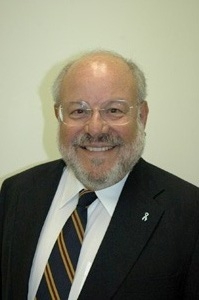If the German army had been opposed when Hitler ordered 20,000 troops into the demilitarized Rhineland in 1936, members of the German General Staff, in interrogations by U.S. military officers and intelligence agents, said they would have moved to overthrow Hitler.
In an interview last week, Peter M. F. Sichel said this was what both U.S. Army and intelligence agents were told by members of the German General Staff.
Sichel was an officer during World War II in the Office of Strategic Services (OSS), rising to captain, and after the Central Intelligence Agency was established became chief of the CIA base in Berlin.
He said many of the German General Staff "hated Hitler." They looked down at his status as a corporal in World War I. Moreover, "the General Staff told him that they could not face the French. They did not have the means -- the troops and the armaments -- to do this."
Sending the German army into the Rhineland became a "gamble of Hitler's and he was successful." That was because France and Great Britain didn't mount a challenge, said Sichel. This was even though the move was in contravention of the Treaty of Versailles and the Locarno Treaties. And it was even though the "the French had a very professional army and then they had universal conscription." The British, meanwhile, "had enormous problems" notably involving unemployment. "It was the middle of the Depression."
There was also a British government policy of appeasement.
A variety of historians have also said that strong military action by the French and British to oppose the German move was a moment in time when Hitler could have ended up removed.
William L. Shirer in his comprehensive 1960 book The Rise and Fall of the Third Reich, A History of Nazi Germany, quotes the testimony at the Nuremberg Tribunal of Alfred Jodl, chief of the Operations Staff of the Wehrmacht, the German armed forces, through World War II, that: "Considering the situation we were in, the French covering army could have blown us to pieces."
Shirer writes that the French army "could have" done this, and "had it, that almost certainly would have been the end of Hitler, after which history might have taken quite a different and brighter turn than it did, for the dictator could never have survived such a fiasco."
Shirer also cites Hitler himself saying, "The forty-eight hours after the march into the Rhineland were the most nerve-racking in my life. If the French had marched into the Rhineland, we would have had to withdraw with our tails between our legs, for the military resources at our disposal would have been wholly inadequate for even a moderate resistance." Hitler also said: "A retreat on our part would have spelled collapse."
Wrote Shirer: "In retrospect, it is easy to see that Hitler's successful gamble in the Rhineland brought him a victory more staggering and more fatal in its immense consequences than could be comprehended at the time." It "opened the way as only Hitler (and Churchill, alone in England) seemed to realize, to vast new opportunities in a Europe which was not only shaken but whose strategic situation was irrevocably changed by the parading of three German battalions across the Rhine bridges."
Declared Shirer: "In March 1936 the two Western democracies were given their last chance to halt, without the risk of a serious war, the rise of a militarized, aggressive, totalitarian Germany and, in fact -- as we have seen Hitler admitting -- bring the Nazi dictator and his regime tumbling down. They let the chance slip by."
After World War I, the Rhineland, a portion of Germany that borders on France, Belgium and the Netherlands, was to be permanently demilitarized to increase the security of those countries against future German aggression. Under the Treaty of Versailles, the German military was to be barred from this area west of the Rhine River or within 50 kilometers east of it. Reaffirming this were the Locarno Treaties, seven treaties negotiated in Locarno, Switzerland in 1925.
In 1936, said Sichel, the German army consisted of a small fraction of the millions of soldiers it would have during World War II. Hitler took over in Germany three years earlier.
Sichel also spoke in our interview of how in other ways members of the German General Staff looked down at Hitler. "Many of the officers were aristocrats," part of a "landed gentry."
Sichel knows Germany well -- he was born in Mainz where his great-grandfather founded the original Sichel wine company in 1857.
(Note: You can view every article as one long page if you sign up as an Advocate Member, or higher).





